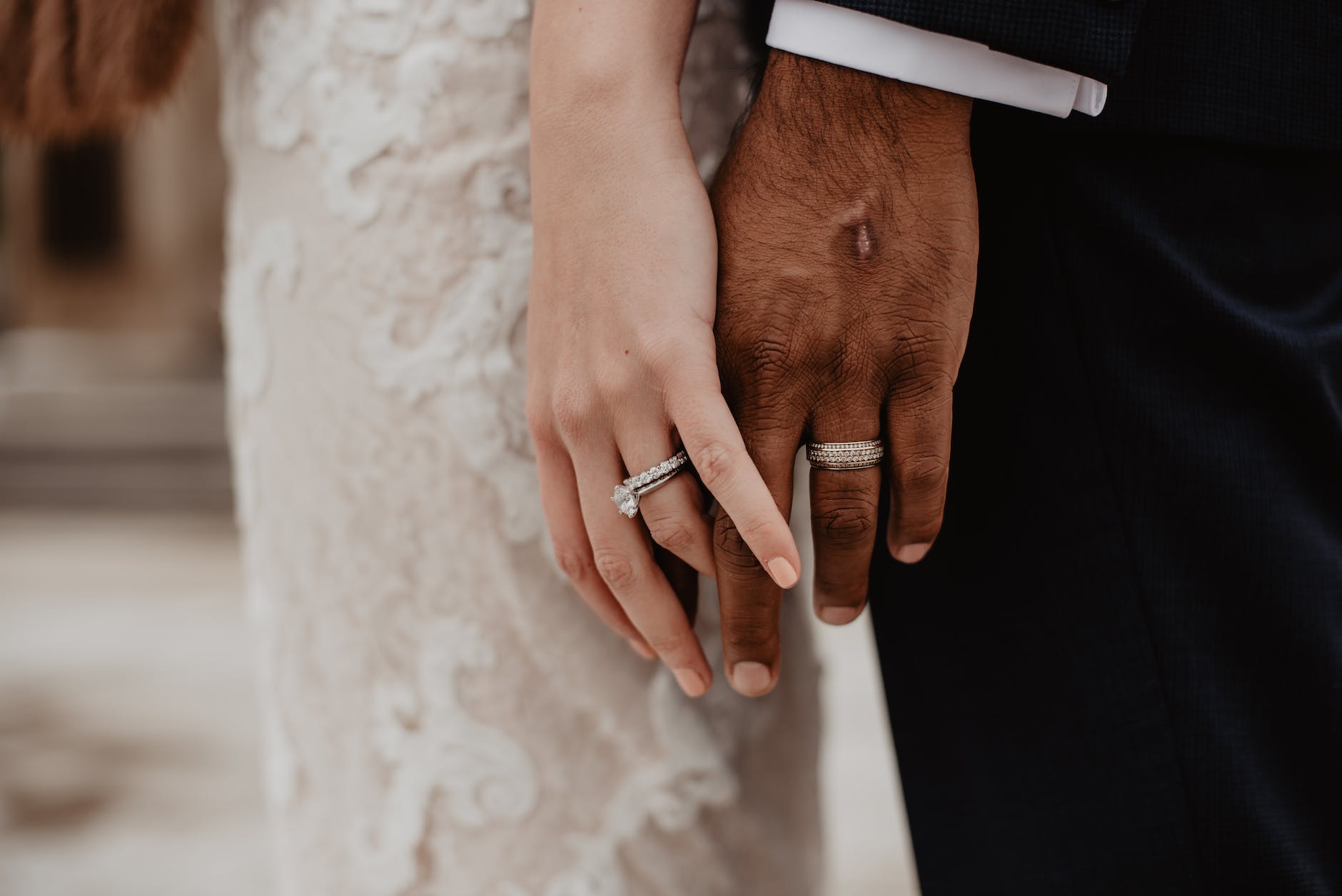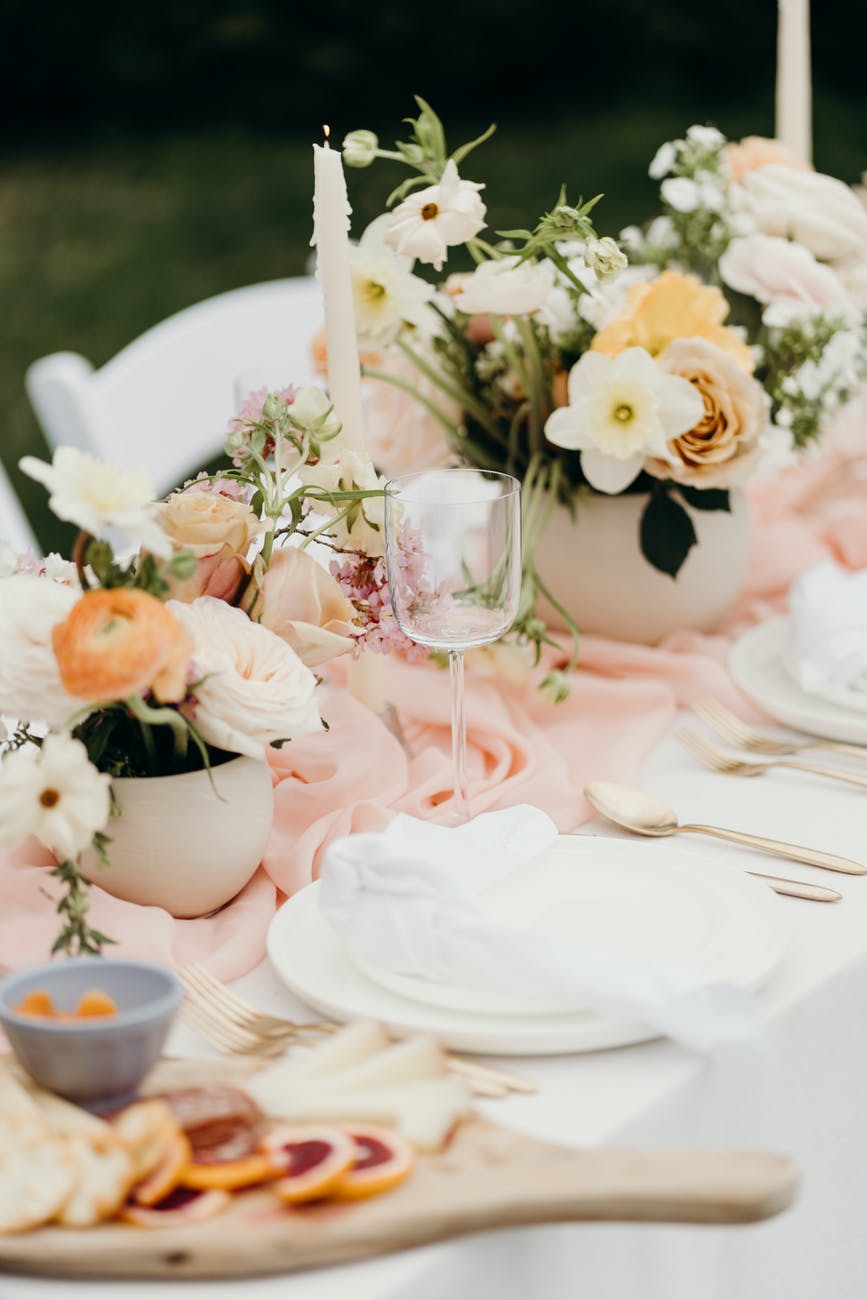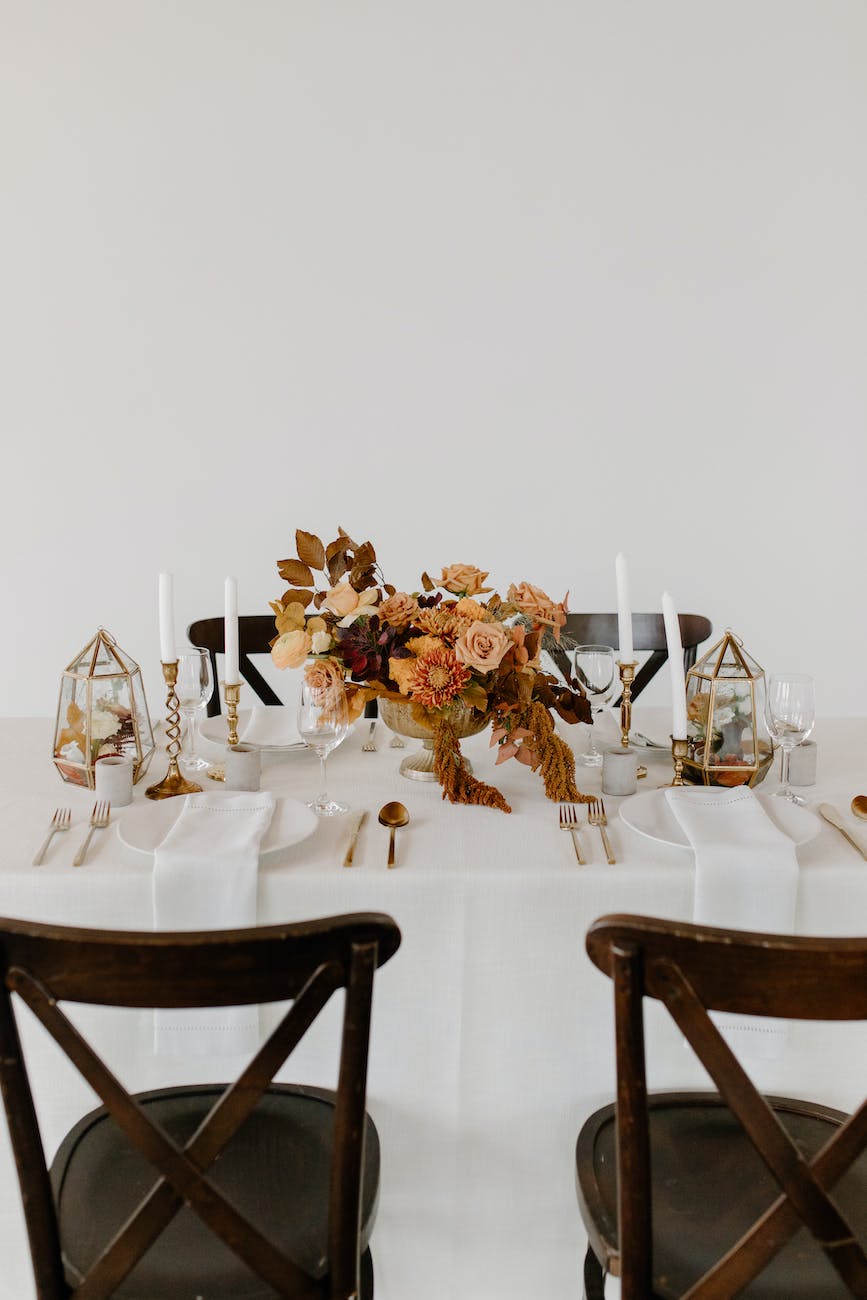Traditionally the bride’s family is responsible for the entire wedding ceremony and usually the cost of the reception.
The groom or his family may offer to share wedding costs (paying for the liquor or music at the reception).
Wedding costs are traditionally divided like this:
The bride (or her family) usually pays these wedding expenses:
Invitations, announcements, enclosures and Bride’s personal Stationery.
Wedding dress, veil, and accessories.
A set of clothes and lingerie.
Bouquets or corsages for honor attendant, bridesmaids, and flower girl.
Flowers for the ceremony site and reception.
Engagement and wedding photographs.
Rental fee for the ceremony site (if any).
Fees for the Marriage Officiant, singer(s) and or musician(s).
Rental of aisle carpet, marquee, other equipment.
Transportation of bridal party to ceremony and reception sites.
Reception, including food, drinks, music, decorations, professional services (unless the groom’s family pays a part).
Groom’s ring (for a double ring ceremony).
Wedding gift for the groom and gifts for bride’s attendants.
Lodging (if necessary) for any bridesmaids from out-of-town.
The groom (or his family) usually pays these wedding expenses:
Bride’s engagement and wedding rings.
Marriage License.
Marriage Officiant’s or Judge’s fee (it can range from $50-$500)
Bride’s flowers, including going-away corsage and bouquet. **
Boutonnieres for men in wedding party.
Corsages for mothers. ***
Gloves, ties, ascots for male attendants.
Wedding gift for the bride and gifts for the best man and ushers.
Complete wedding trip.
Lodging (if any) for out-of-town ushers.
Rehearsal dinner (optional).
Expenses that are optional or are set by local custom:
** The bride’s bouquet, traditionally a gift from the groom, may be purchased by the
bride’s family as part of the outfit.
*** Corsages for mothers, grandmothers are provided by the groom, but the bride may
buy those for her mother, grandmother.
The groom, his attendants or his male friends give a bachelor dinner.
The rehearsal dinner is given by groom’s family, but may be given by the bride’s family or friends.
Each person usually buys attendants’ dresses, or the bride may buy them.
A brides luncheon is generally given by the bride, but may be given by her attendants or her family.
Other expenses:
Out-of-town guests provide their own food, lodging and travel expenses.
Usher’s generally pay for their suits or tuxedos.
#WeddingPlanning #WeddingDirectory #WeddingTips #Weddings #unitytheweddingdirectory #unity #weddingdirectory #weddingplanner #weddinginspiration #weddingideas #weddingexpenses



